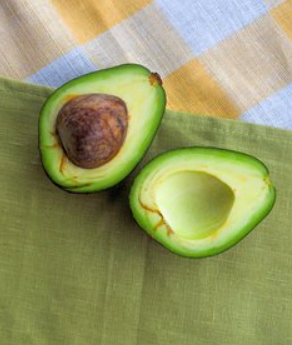
How Much Protein Does an Avocado Contain?
Avocados are a popular and nutritious addition to many diets around the world. Known for their creamy texture and rich flavor, they are a versatile food that can be used in everything from salads to smoothies. While avocados are famous for their healthy fats, many wonder whether they are a good source of protein.
Avocados are technically classified as fruits, but they differ from most fruits in both flavor and nutritional composition. These fruits are packed with monounsaturated fats, vitamins, minerals, fiber, and antioxidants, making them a healthful food choice. Whether you’re aiming to manage cholesterol, diabetes, or improve skin health, avocados are a smart addition to your daily diet.
Protein in an Avocado
While avocados are nutrient-dense, they are not a significant source of protein. A medium-sized avocado contains about 3 grams of protein. Most people typically consume half an avocado at a time, which provides approximately 1.5 grams of protein. Despite their low protein content, avocados are rich in healthy fats and fiber, which contribute to their overall nutritional value.
If you’re looking to boost your protein intake with avocados, there are simple ways to combine them with higher-protein foods. For example, whole wheat bread can add up to 5 grams of protein per slice. If you enjoy avocado toast, using two slices of whole wheat bread with one mashed avocado provides about 13 grams of protein. For an additional protein boost, sprinkle hemp seeds (which provide 6 grams of protein per 2 tablespoons) or mix in some garbanzo beans for an extra 7 grams of protein.
For those who aren’t fond of the texture of avocados, blending them into smoothies is an easy solution. Adding avocado to a smoothie with fruits, plant-based milk, and protein powder can create a creamy, protein-packed drink that masks the avocado’s texture while still delivering its nutritional benefits.
Nutritional Profile of Avocados
Even though avocados are not a significant protein source, they are often called a superfood due to their dense concentration of beneficial nutrients. They are rich in fat-soluble vitamins, including vitamin A and vitamin E, which are easily absorbed by the body due to the avocado’s fat content. Additionally, avocados contain lutein, an antioxidant that supports eye health, and they are also high in fiber.
The exact nutritional content of an avocado can vary depending on factors like size, ripeness, and variety. For a general reference, here is the nutritional breakdown of one medium-sized Hass avocado:
-
240 calories
-
3 grams of protein
-
22 grams of fat (mostly monounsaturated)
-
13 grams of carbohydrates
-
10 grams of fiber
-
728 milligrams of potassium
-
122 micrograms of folate
-
3.1 milligrams of vitamin E
-
31.5 micrograms of vitamin K
-
406 micrograms of lutein and zeaxanthin
Health Benefits of Avocados
Avocados are known for their heart-healthy fats, which are linked to improved cholesterol levels and reduced cardiovascular risk. Regular avocado consumption has been associated with lower LDL (bad cholesterol) and higher HDL (good cholesterol). The monounsaturated fats in avocados make up more than 70% of their fat content, with the remaining fat coming from polyunsaturated and saturated fats. Interestingly, the more ripe an avocado is, the higher its monounsaturated fat content.
Avocados and Type 2 Diabetes
For individuals with type 2 diabetes, avocados are an excellent choice. They are low in carbohydrates and rich in fiber, with about 80% of the carbs coming from fiber, which helps maintain stable blood sugar levels. This makes them a low glycemic food, ideal for those managing diabetes. Additionally, the monounsaturated fats found in avocados may improve insulin sensitivity, contributing to better overall blood sugar control.
Weight Management and Satiety
A common misconception is that avocados, being high in fat, may lead to weight gain. However, research shows that moderate-fat diets can aid in weight management. The combination of fiber and healthy fats in avocados can increase feelings of fullness and satisfaction after meals, helping to control hunger. In fact, studies have shown that adding half an avocado to a meal can reduce appetite and enhance overall satisfaction.
Additional Benefits
Beyond heart health and diabetes management, avocados offer a range of other health benefits. Lutein and zeaxanthin, the antioxidants found in avocados, can help protect against age-related vision problems. These carotenoids have also been shown to reduce inflammation, lowering the risk of conditions like osteoarthritis. Preliminary research even suggests that avocados may play a role in cancer prevention and treatment.
Conclusion
While avocados may not be a powerhouse of protein, their rich array of other nutrients makes them an incredibly valuable food for your health. From heart health to improved blood sugar control, weight management, and even eye protection, avocados provide a variety of benefits that make them a valuable addition to any diet. Whether you enjoy them on toast, in a salad, or blended into a smoothie, avocados are a versatile and nutritious choice for anyone looking to improve their overall health.




